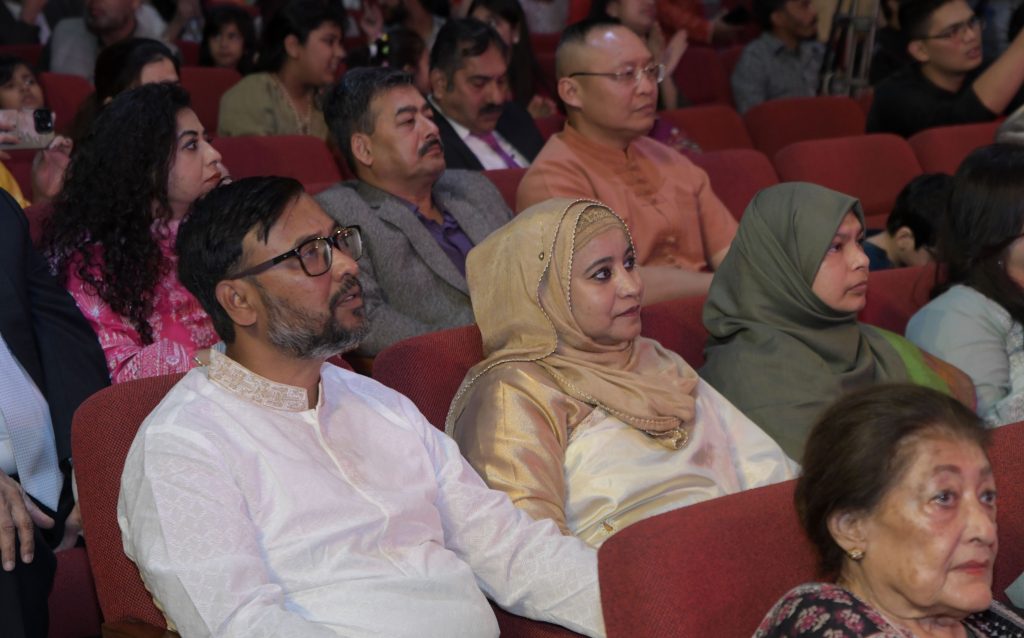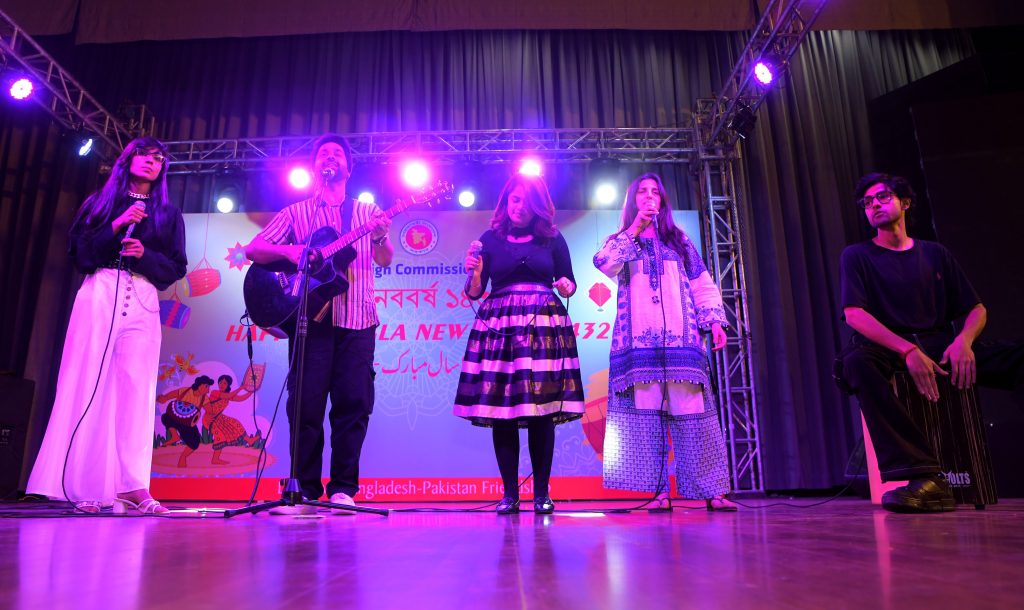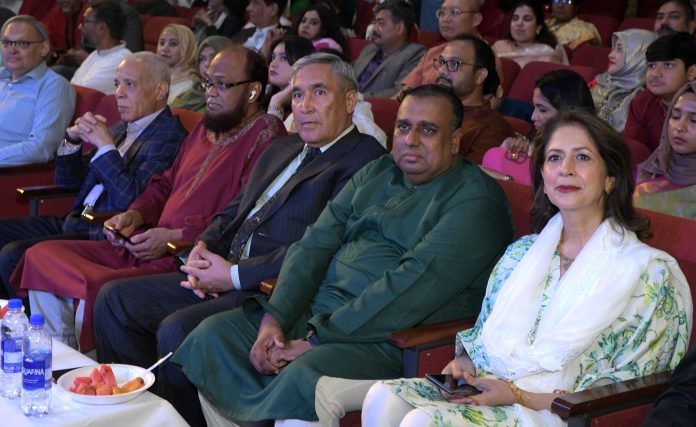Ansar M Bhatti
Islamabad,— The Bangladesh High Commission in Islamabad hosted a vibrant celebration of the Bengali New Year, known as Pohela Boishakh, bringing together diplomats, cultural enthusiasts, and members of the Bangladeshi community in Pakistan for a colorful and meaningful event. Held at the Sir Syed Memorial Society premises, the festivities reflected the deep-rooted cultural traditions of Bangladesh and underscored the growing warmth in Pakistan-Bangladesh bilateral relations.
Iqbal Hussain, the High Commissioner of Bangladesh to Pakistan, inaugurated the event with an address highlighting the cultural significance of Pohela Boishakh—a day that marks the beginning of the Bengali calendar and is celebrated across Bangladesh with music, dance, and traditional attire.

In his speech, High Commissioner Hussain emphasized that the Bengali New Year is not just a celebration of cultural identity, but also a symbol of unity and renewal. “Pohela Boishakh is a time to reflect on our shared heritage and to look forward to new beginnings,” he said. He also noted a positive shift in the relations between Pakistan and Bangladesh, stating, “Our ties are entering a new phase after a revolution of reform and progress in Bangladesh. The new government in Dhaka is committed to strengthening its diplomatic and cultural relations with Islamabad.”
The event was graced by the presence of Ms. Anbreen Jan, Federal Secretary for Information and Broadcasting, who attended as the chief guest. Ms. Jan shared her personal connection to Bangladesh, having served there for six years during her tenure. “I hold very fond memories of my time in Bangladesh. I have witnessed the richness of its culture, the warmth of its people, and the vibrant spirit of Pohela Boishakh. It is a festival that unites people regardless of boundaries,” she said.
The celebration featured a variety of cultural performances by members of the Bangladeshi community living in Pakistan. Traditional songs, dances, and poetry in Bengali captivated the audience, offering a taste of home to expatriates and a window into Bangladeshi culture for local attendees. The performers, dressed in colorful saris and punjabis, brought the energy and joy of Dhaka’s New Year celebrations to Islamabad.
Guests were also treated to an array of authentic Bangladeshi cuisine. The food stalls added a festive aroma to the event and allowed guests to experience the culinary richness of Bangladesh.

The celebration served as a cultural bridge between the two nations, promoting understanding and goodwill. It highlighted how shared cultural events can foster closer people-to-people ties and support diplomatic engagement.
With growing enthusiasm for strengthening bilateral ties, the Bengali New Year celebration in Islamabad was not just a festivity—it was a step forward in building deeper connections between Bangladesh and Pakistan. As both countries look toward the future, such events offer a promising reminder of the harmony that can be achieved through cultural exchange.

















